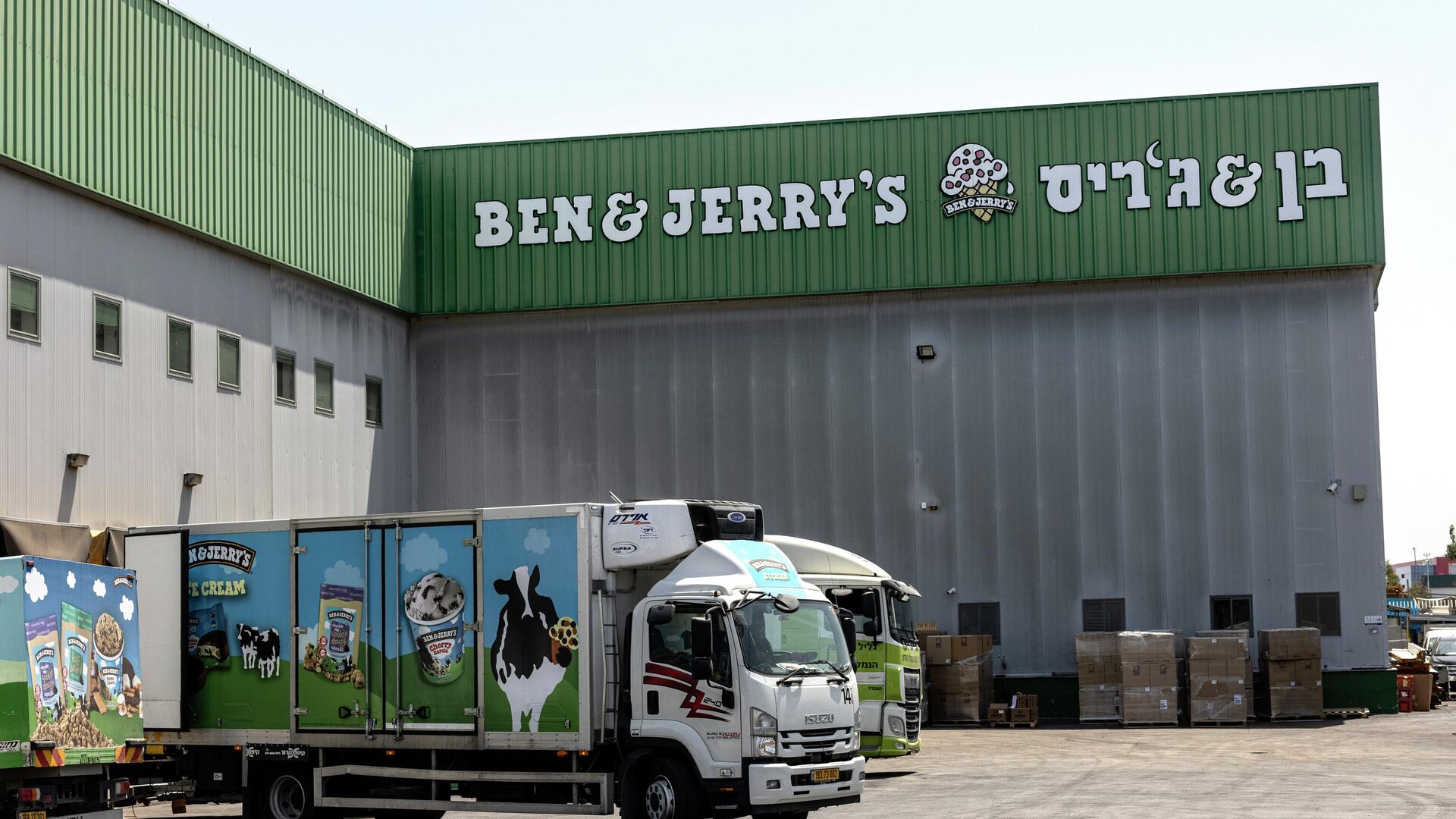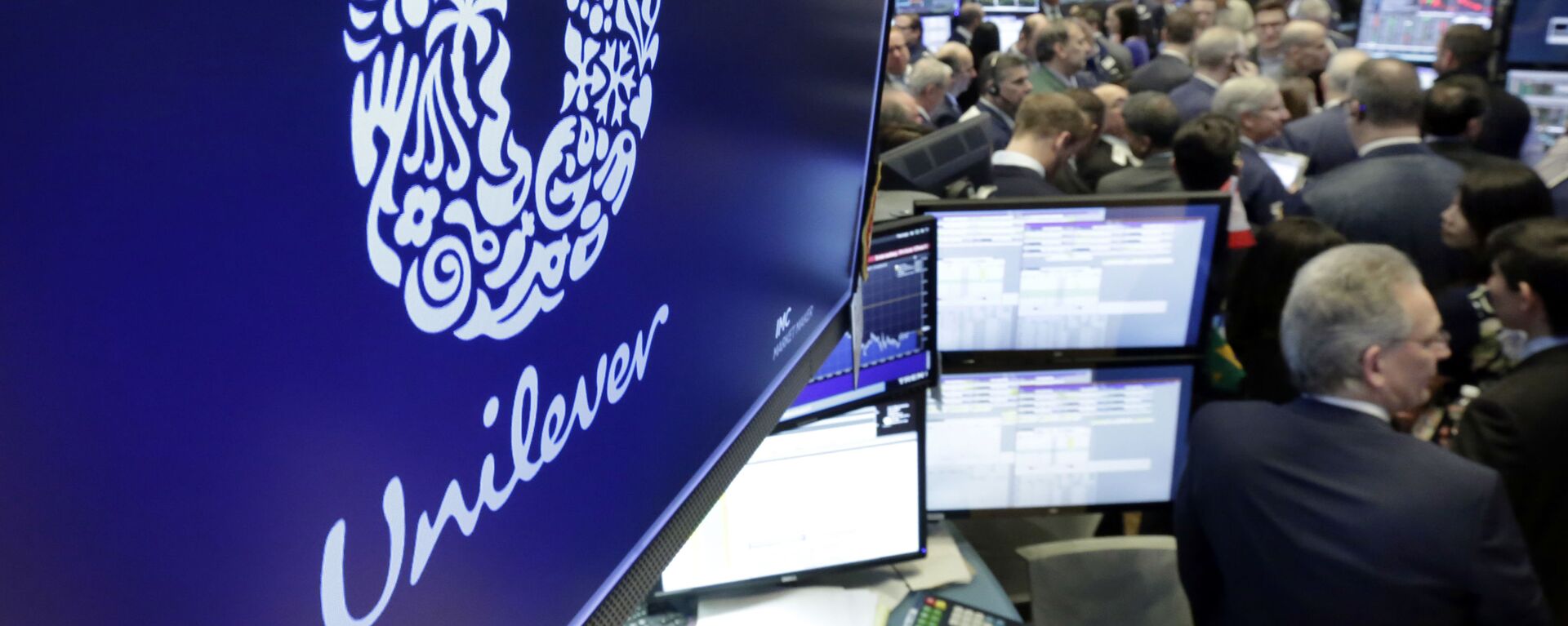https://sputnikglobe.com/20220823/us-court-rejects-ben--jerrys-bid-to-stop-sale-of-ice-cream-products-in-west-bank--1099878170.html
US Court Rejects Ben & Jerry's Bid to Stop Sale of Ice Cream Products in West Bank
US Court Rejects Ben & Jerry's Bid to Stop Sale of Ice Cream Products in West Bank
Sputnik International
On July 5, Ben & Jerry's filed a lawsuit against its parent company Unilever, alleging the sale of its Israeli business to local licensee Avi Zinger was a... 23.08.2022, Sputnik International
2022-08-23T00:51+0000
2022-08-23T00:51+0000
2023-01-15T17:26+0000
world
middle east
west bank
ben & jerry's
unilever
israel
https://cdn1.img.sputnikglobe.com/img/07e6/08/17/1099878361_0:0:3064:1725_1920x0_80_0_0_a141667c549f611681715f10fdb1fe2a.jpg
The stop of the sale of Ben & Jerry's ice cream in the West Bank, which the company claimed went against its core beliefs, was denied by a US judge on Monday. Ben & Jerry's had sought to have Unilever cease the sale of its products in the territory, Reuters reported.According to US District Judge Andrew Carter, whose decision is quoted by the outlet, Ben & Jerry's did not prove it would suffer irreparable harm or that customers would be confused, so it did not merit an injunction to stop ice cream sales and marketing.Nearly a year had passed since Ben & Jerry's decided to stop selling its products in the West Bank, citing the fact that doing so was "inconsistent" with the morals and social mission it still had the right to advance. Unilever argued in response that Ben & Jerry's lacked the authority to halt the sale of the Israeli company, and that the transaction could not be reversed because it had already closed in late June.Carter dismissed the notion that customers might be confused if Zinger launched new goods expressing a message that would conflict with Ben & Jerry's own as "too speculative" in light of Unilever's ambition to give its more than 400 brands social goals and purposes.He also mentioned that Hebrew and Arabic trademarks, rather than English-language trademarks, will be used on goods sold in the West Bank.The decision sparked an uproar from proponents of Israel, many of whom accused the company, which was established by two Jewish-American men, of anti-Semitism. Ben & Jerry's and Unilever were also targeted by several US states over the decision, which many proponents of Palestinian rights said was part of a long-standing campaign against free speech that criticizes Israel.In order to get around Ben & Jerry's decision, Unilever opted to license the ice cream sales to a third party in Israel after nearly a year of consistent pressure, especially from the Anti-Defamation League (ADL), a pro-Israel Jewish-American advocacy group.
https://sputnikglobe.com/20210723/ben--jerrys-parent-company-remains-fully-committed-to-israel-despite-drama-over-sales-halt-1083443161.html
west bank
israel
Sputnik International
feedback@sputniknews.com
+74956456601
MIA „Rossiya Segodnya“
2022
News
en_EN
Sputnik International
feedback@sputniknews.com
+74956456601
MIA „Rossiya Segodnya“
Sputnik International
feedback@sputniknews.com
+74956456601
MIA „Rossiya Segodnya“
middle east, west bank, ben & jerry's, unilever, israel
middle east, west bank, ben & jerry's, unilever, israel
US Court Rejects Ben & Jerry's Bid to Stop Sale of Ice Cream Products in West Bank
00:51 GMT 23.08.2022 (Updated: 17:26 GMT 15.01.2023) Kirill Kurevlev
Managing Editor
On July 5, Ben & Jerry's filed a lawsuit against its parent company Unilever, alleging the sale of its Israeli business to local licensee Avi Zinger was a breach of the contract through which Unilever acquired the Vermont-based corporation in 2000.
The stop of the sale of Ben & Jerry's ice cream in the West Bank, which the company claimed went against its core beliefs, was denied by a US judge on Monday. Ben & Jerry's had sought to have Unilever cease the sale of its products in the territory, Reuters reported.
According to US District Judge Andrew Carter, whose decision is quoted by the outlet, Ben & Jerry's did not prove it would suffer irreparable harm or that customers would be confused, so it did not merit an injunction to stop ice cream sales and marketing.
Nearly a year had passed since Ben & Jerry's decided to stop selling its products in the West Bank, citing the fact that doing so was "inconsistent" with the morals and social mission it still had the right to advance.
Unilever argued in response that Ben & Jerry's lacked the authority
to halt the sale of the Israeli company, and that the transaction could not be reversed because it had already closed in late June.
Carter dismissed the notion that customers might be confused if Zinger launched new goods expressing a message that would conflict with Ben & Jerry's own as "too speculative" in light of Unilever's ambition to give its more than 400 brands social goals and purposes.
"Ben & Jerry's has offered no evidence of such confusion or the impact of the alleged confusion," the judge reportedly wrote.
He also mentioned that Hebrew and Arabic trademarks, rather than English-language trademarks, will be used on goods sold in the West Bank.
The decision sparked an uproar from proponents of Israel, many of whom accused the company, which was established by two Jewish-American men, of anti-Semitism. Ben & Jerry's and Unilever
were also targeted by several US states over the decision, which many proponents of Palestinian rights said was part of a long-standing campaign against free speech that criticizes Israel.
In order to get around Ben & Jerry's decision, Unilever opted to license the ice cream sales to a third party in Israel after nearly a year of
consistent pressure, especially from the Anti-Defamation League (ADL), a pro-Israel Jewish-American advocacy group.



